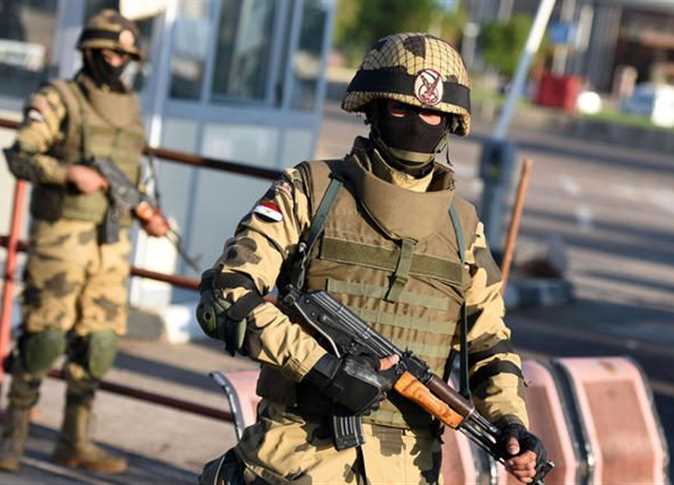The daily arguments on the street and in public transportation in Suez following the stabbing to death of an engineering student named Ahmed Hussein Eid, allegedly at the hands of a Salafi, are crucial for understanding the larger debates in Egypt today over the handover of power and the drafting of the new constitution.
I was in Suez over the past few days, gathering firsthand accounts of the pattern of incidents by “vigilante morality police” that have begun to operate in Egypt. A Salafi sheikh named Walid and his companions are accused of stabbing Eid to death on 25 June for walking with his fiancee. Sheikh Walid and his companions claim to represent a self-styled version of Saudi Arabia’s Committee for the Promotion of Virtue and Prevention of Vice.
The accounts I gathered reconciled with Sheikh Walid and his companions’ own accounts of their routine stopping of people whose behavior they deemed “immoral.” They would ask couples standing alone on the corniche about their relationships to make sure they were either married or siblings.
Some of the visitors to al-Naby Moussa Mosque who are close to Sheikh Walid and his companions believe that Eid and his fiancee were not well-behaved and must have refused to listen to Sheikh Walid, blaming the victim for answering him back shamelessly and provoking him.
This is how a sector of Suez residents perceives what happened. Yet there are those who vehemently reject such guardianship and wonder what Sheikh Walid has to do with people’s behavior and relationships.
Some Suez residents who witnessed similar incidents, or know Sheikh Walid by reputation, say his behavior has led to friction and numerous arguments in the past that were only a prelude to this fatal fight.
One of the witnesses said he had a fight with Sheikh Walid while walking with one of his female relatives last November, after the latter asked him to prove their kinship. He said Sheikh Walid was ill-mannered and jabbed him in his body after he insisted that the sheikh had nothing to do with them.
Police intervened and ended the fight. The witness said the police knew Sheikh Walid quite well and even called him by name.
What is most surprising about these incidents is that the police and Interior Minister seem to sense no trouble in the fact that individuals like Sheikh Walid are trying to exercise power in the name of religion and good manners, allowing themselves to question people’s intentions and impede on their right to privacy.
The headquarters of the Salafi Nour Party is moments away from al-Naby Moussa Mosque. The party has officially condemned the killing of innocent people and rejected individuals intervening to correct others’ behavior — a job that they would leave to the “ruler.” But the party has also stated that what happened, though wrong, had a noble goal.
After a long conversation about personal freedoms and democracy with the party’s secretary general in Suez, he ended up emphasizing respect for the law, all while stating that the party seeks to have freedoms limited by Sharia. This, he added, is the job of the state, and therefore should be incorporated in the constitution.
This is exactly where this incident relates to the wider political backdrop. Claiming to have the right to exercise power in the name of religion and morality, while restricting personal freedoms and privacy, is at the root of the crisis between Sheikh Walid and Eid. The same standoff is currently ripping the polarized Egyptian street apart, with Salafi representatives in the Constituent Assembly scrambling to impose this same guardianship on society by restricting freedoms in the name of Sharia.
There is an attempt to incorporate an article in the constitution that suppresses the political and social activity of Egyptians so that it does not violate what the Islamists define as an “Islamic identity.” The danger, however, is that the parameters of this identity will be defined by those in power.
Commenting on the scattered attempts on violations of personal freedoms, official spokespeople for the Muslim Brotherhood and Salafis said these incidents were well intentioned, but added that the role of correcting people’s behaviors should be left to the state.
The Islamist current is thus announcing, implicitly or explicitly, its project to impose its guardianship on the people and to monitor their actions. It may reject individual initiatives in this regard but it wants those in power to carry out this function. Both Sheikh Walid and the political project presented by Islamists in Egypt seek to exercise power in the name of religion.
Those who only see democracy as a way of seizing power forget that the “rule of the people” means that people have the right to act freely, and to behave in ways that might even be rejected by the majority. The people have the right to not be scrutinized by others in the name of religion, or the regime, or the preservation of identity. It is a shame that it is enemies of democracy who occupy Egypt’s democratic institutions.
Amr Ezzat is a journalist and researcher at the Egyptian Initiative for Personal Rights. This article has been translated from Al-Masry Al-Youm’s website by Dina Zafer.
This piece was originally published in Egypt Independent's weekly print edition.




